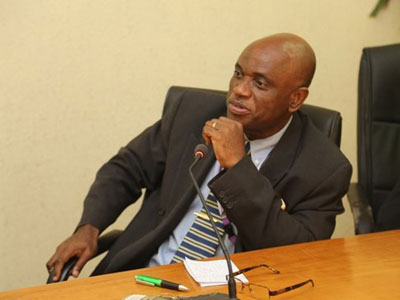
EXCEPT there is a serious pan-Nigerian political struggle against the antics of the Peoples Democratic Power (PDP) to win and retain power, the 2015 general elections will not be free and fair.
This is the position of Kunle Amuwo, a Professor of Political Science and International Relations at the Covenant University, Ota in Ogun State.
Presenting a paper titled, ‘Bullet versus Ballot: Interrogating Nigeria’s 4th Republic’s Electoral Consultations,’ Amuwo, who cited the narratives surrounding the activities of the ruling party in the last 16 years, regretted that Nigeria is one of the most badly and poorly governed nation-state on the globe.
He argued that the military and elite pact that birthed the Fourth Republic in May 1999 had not worked, stressing that the nature and character of the elections conducted thus far had often been programmed to achieve predetermined results.
He said: “In 1999, candidate Obasanjo had to win and in 2007, he selected a frail and fragile but apparently relatively incorrupt Yar’Adua to succeed him. He also could not have lost.
“Sitting governments and entrenched ruling parties do not easily lose elections; will history repeat itself in February 2015?
“Let me reiterate a major point developed both implicitly and explicitly, that it is too late to have free and fair elections in February 2015, let alone elections that are free from fear.
“Fairly credible elections are a possibility but they have to be exacted at a cost, including through eternal vigilance and standing to be counted on the side of political truth and social justice.”
Prof. Amuwo expressed a new paradigm of state-society relations and a brand new social contract and governance paradigm that would launch Nigeria on the path of genuine democratisation and popular empowerment.
He, however, advised that, “the most critical political struggle in the aftermath of the polls irrespective of the party that wins at the centre and the presidency should be centred on bringing the state back into the public sphere and space where it really belongs.”
“Why we are where we are today, with all the shenanigans of the political elite the Nigerian people routinely put up with, is because the Nigerian state ceased long ago, arguably since the Babangida rolled out, rather deceptively, the first set of orthodox market reforms in the mid1980s, to be a public agency that gives happiness and welfare to Nigerians,” he said.
Amuwo hinted that once the state is brought back in, “the singular fact alone will ensure that corruption, clientelism and cronyism — the three ugly brothers — would not foster their nets any longer.”
“The state has to come back. In order words, we have to get leaders who are going to build state institutions,” he said.
“We have them up till 1999; we have free tuitions in Nigerian universities, and we have children of peasants who are able to access higher education.
“So, you have to bring in back the state as a developmental state; a state that offers social economic dividends of democracy, not just civic political.
“Public resources will be released for public goods provisioning. Free and fair elections will not happen suddenly, but we will be on the road to recovering it as a prized trophy for this generation and the ones to follow.
“The ballot would have, by then, almost fully supplanted bullet.”



